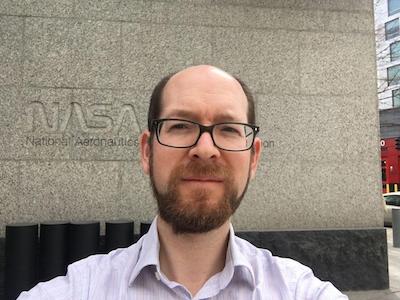
The burgeoning science of astrobiology is featured in newspapers on an almost weekly basis, whether that's because we are finding potentially habitable sites elsewhere in our solar system, or because of the growing tally of ‘exoplanets’, which is to say of planets around other suns. We now know that such planets are a widespread feature, across the portions of the universe we have investigated to date, and that means that cradles for life are likely profoundly widespread also, with maybe 10 billion billion Earth-like planets around sun-like stars in the observable universe (and that doesn’t take into account all the rather un-Earthlike planets that might also be able to sustain life). Since the evolution of life is clearly not impossible, and the places where that might happen are probably extraordinarily numerous, there may well be a great deal of life elsewhere. Something else that points in that direction is noting that life on Earth got started remarkably shortly after it was conceivable that it could survive at all.
Religious traditions would be an important feature in how humanity would work through any such confirmation of life elsewhere. Because of that, it features as part of NASA’s ongoing aim to support work on ‘the societal implications of astrobiology’, working with various partner organisations, including the Center of Theological Inquiry at Princeton. Andrew Davison, our Starbridge Lecturer in Theology and Natural Sciences, is in Princeton as a member of the Center this academic year, 2016-2017. His focus is on the consequences of astrobiology for Christian theology. We asked him for a report on his work to date.
Andrew writes: ‘My project is easy to define. I am researching and writing a survey of the main topics in Christian belief – what is sometimes called ‘systematic theology’ – from the perspective of life elsewhere in the universe. I am thinking about its bearing on the doctrines of creation, sin, the person and work of Jesus, redemption, revelation, eschatology, and so on. Perhaps the main discovery I would report on to date is finding just how frequently theology-and-astrobiology has been topic in popular writing for at least a century and a half: in monthly magazines for instance, or even in Barchester Towers. On the other hand, the discussion has hardly developed beyond that popular level. I see my main task as identifying, and working with, parts of the theological tradition that could bear directly upon the topic, even though they have not yet been brought to bear. In thinking theologically about life elsewhere in the universe, there has been a tendency to pick up mainly on passages from previous theological work where other life has been the topic under discussion. I want to move beyond that, and join the discussion to a much wider range of material and perspectives. So far, my attention has mainly been focussed on what theologians call Christology: the discussion of who Jesus was, and in particular of what it would mean to hold that he is both human and divine. The most significant question there is probably whether one would respond theologically to the prospect of life elsewhere in terms of there having been many incarnations, or only the one theologians talk about in Jesus. I have also been thinking about the doctrine of creation, especially in terms of how it deals with themes of multiplicity and diversity.’
